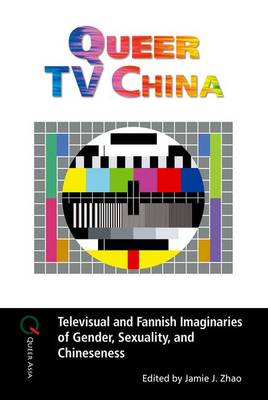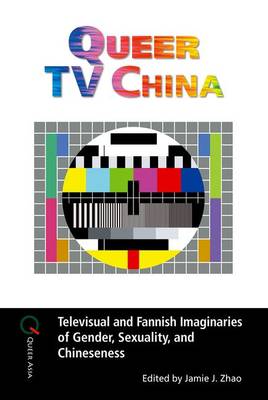
- Afhalen na 1 uur in een winkel met voorraad
- Gratis thuislevering in België vanaf € 30
- Ruim aanbod met 7 miljoen producten
- Afhalen na 1 uur in een winkel met voorraad
- Gratis thuislevering in België vanaf € 30
- Ruim aanbod met 7 miljoen producten
Queer TV China
Televisual and Fannish Imaginaries of Gender, Sexuality, and Chineseness
Omschrijving
The 2010s have seen an explosion in popularity of Chinese television featuring same-sex intimacies, LGBTQ-identified celebrities, and explicitly homoerotic storylines even as state regulations on "vulgar" and "immoral" content grow more prominent. This emerging "queer TV China" culture has generated diverse, cyber, and transcultural queer fan communities. Yet these seemingly progressive televisual productions and practices are caught between multilayered sociocultural and political-economic forces and interests.
Taking "queer" as a verb, an adjective, and a noun, this volume counters the Western-centric conception of homosexuality as the only way to understand nonnormative identities and same-sex desire in the Chinese and Sinophone worlds. It proposes an analytical framework of "queer/ing TV China" to explore the power of various TV genres and narratives, censorial practices, and fandoms in queer desire-voicing and subject formation within a largely heteropatriarchal society. Through examining nine cases contesting the ideals of gender, sexuality, Chineseness, and TV production and consumption, the book also reveals the generative, negotiative ways in which queerness works productively within and against mainstream, seemingly heterosexual-oriented, televisual industries and fan spaces.
Specificaties
Betrokkenen
- Uitgeverij:
Inhoud
- Aantal bladzijden:
- 252
- Taal:
- Engels
- Reeks:
Eigenschappen
- Productcode (EAN):
- 9789888805617
- Verschijningsdatum:
- 19/04/2023
- Uitvoering:
- Hardcover
- Formaat:
- Genaaid
- Afmetingen:
- 156 mm x 230 mm
- Gewicht:
- 476 g

Alleen bij Standaard Boekhandel
Beoordelingen
We publiceren alleen reviews die voldoen aan de voorwaarden voor reviews. Bekijk onze voorwaarden voor reviews.










